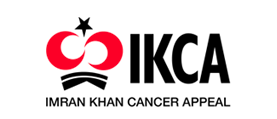“As for the doctors, they treat us like relatives and have become parents to him with their kindness and care.”
“We have been here for a year and a half now,” Muhammad’s mother explains. “My son was diagnosed in 2014, and at the time, the doctors told us it was too late.”
Muhammad Furqan was taken to a local hospital two years ago, when his stomach became very swollen and he started suffering from excruciating pains. Initially, the doctors told his family he needed stomach surgery. It was only after the operation that they said they’d discovered a cancerous tumour, which they had not known about before. “They saw no hope for his care,” recalls Muhammad’s mother, “They told us that we could try taking him to Shaukat Khanum Hospital. It was our final resort. I am so grateful they admitted him immediately when we brought him here, and they’ve been treating him since.”
After his initial treatment at Shaukat Khanum Hospital, Muhammad Furqan’s tumour was removed and he seemed to be in the clear. But he started getting pains again and relapsed. “We are back at the Hospital now, and his chemotherapy treatments are on going,” says Furqan’s mother, who goes on to detail how much the hospital staff do to help them during this difficult time. “I am amazed at how caring and how meticulous every person is at the hospital. They are so accommodating with us, especially since I often have to leave my son behind to go take care of his younger siblings.”
“I have been here for eight or nine days now and will have to leave again soon; but when I leave I know I am leaving him in good hands. There is always a member of staff by his side to help him if he is feeling nauseous and needs to throw-up, or if he needs to take medication. As for the doctors, they treat us like relatives and have become parents to him with their kindness, and care.”
Two years is a long time to spend in hospital, tackling a disease that is physically and morally debilitating. For a young man like Muhammad Furqan, that time can seem longer still. Many cancer patients suffer from a loss of self-esteem and depression. This is the time when they are most in need of understanding and support.
“Sometimes he loses his temper,” Muhammad’s mother explains. “Just the other day he wanted to go out and a guard did not let him, because there was no permission given. He got really angry at the guard and staff. I told him off, but the staff told me that it was okay, and that they know what he is going through so they do not mind his outbursts. They then went out of their way to get him permission to go out into the gardens. From the nurses, to the guards everyone has been so good to us here. I have no words to express my gratitude.”
At SKMCH, we know how cancer affects people and their families. It is especially difficult for families like Muhammad Furqan’s that are poor and often reliant on the eldest male. “He was the backbone of the family,” Muhammad’s mother says about her son, who now spends most of his days in a wheelchair. Before his illness, he was his mother’s supporter and the main breadwinner. Now, his mother is torn between caring for him in hospital and caring for his siblings at home, who are still dependant on her. Still, Muhammad Furqan’s mother remains positive, and it is overwhelming to hear her say that she is even grateful. “We thank God that this Hospital saved his life, otherwise, the other hospital had told us there was no chance for his survival. I will never forget this my entire life.”
Back to Our Stories